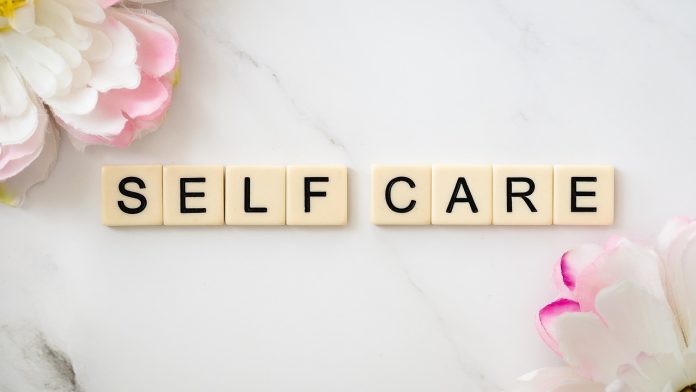The Complete Manual of Self Care Ideas: Strategies to Enhance Your Health
Although self-care is frequently misinterpreted as merely enjoying indulgences like bubble baths or spa days, it actually encompasses much more. Taking proactive measures to preserve and enhance your physical, mental, and emotional health is known as Self Care Ideas. It’s about putting yourself first in a world that demands your attention all the time. Self-care serves as a lifeline, keeping us resilient and balanced in our fast-paced lives where stress, burnout, and weariness are normal occurrences. Regular self-care can result in several advantages, including decreased stress, increased mental clarity, better relationships, and greater general health. This book will explore a variety of self-care concepts, giving you the tools to establish personal routines. This handbook is for everyone, whether they are students, working professionals, or just trying to find ways to feel better.

Self-Care for the Body
Taking good care of your body is essential to leading a happy life because it is your home. Exercise, diet, sleep, and hygiene are all examples of physical self-care practices that have a direct effect on your physical well-being. Exercise can be as easy as finding fun methods to exercise your body; it doesn’t have to involve spending hours at the gym. Pilates and yoga are great ways to relax your mind and increase your strength and flexibility. You may get a terrific aerobic workout and improve your mood by dancing to your favorite music. Walking, hiking, and cycling are examples of outdoor activities that not only keep you moving but also help you re-establish a connection with nature, which has its own advantages, including lowering stress and elevating your mood. Participating in recreational activities with friends or playing sports might even enhance the enjoyment of physical self-care. Finding an activity that excites you to move is crucial to transforming fitness from a chore into a pleasure.
When it comes to self-care, nutrition is essential. Think about including a range of fruits, vegetables, healthy grains, and lean meats in your meals because your body performs best when it is fed nourishing nutrients. Another beneficial habit is mindful eating, which involves paying attention to your body’s signals of hunger and fullness, taking your time to enjoy each bite, and avoiding eating in front of screens. Drinking lots of water throughout the day is crucial for staying hydrated. If you don’t like the taste of plain water, try adding some lemon, cucumber, or mint. Making sleep a priority is yet another crucial aspect of physical self-care. Your body heals itself, your brain digests information, and your energy is replenished while you sleep. Every night, try to get between seven and nine hours of good sleep. Your quality of sleep can be greatly enhanced by establishing a regular sleep pattern, developing a calming nighttime ritual, and making sure your sleeping space is cozy. Last but not least, practicing good hygiene is an easy yet effective way to take care of yourself. You can feel renewed and more confident in your own skin by brushing your hair, taking regular showers, and following a skincare regimen.
Emotional and Mental Self-Care
Maintaining your physical health is crucial, but so is taking care of your mental and emotional wellness. Meditation and mindfulness are great methods for taking care of your mental health. These techniques help you focus better, stay grounded, and manage stress. Simple deep breathing exercises like taking a deep inhale for four seconds, holding it for seven seconds, and then exhaling for eight seconds are a good place to start. Another great choice is guided meditation; numerous applications, such as Calm and Headspace, offer simple, follow-along sessions that promote mental clarity and relaxation. Being attentive doesn’t have to be difficult; simply paying attention to the sights, sounds, and sensations around you while walking can have a significant impact. Another effective strategy for mental self-care is journaling. You can process emotions, spot trends, and solve issues by putting your ideas and feelings on paper. Additionally, journaling can be a creative activity that gives you a quiet, secure setting to explore your inner world.
Learning to control your emotions and handling difficulties with fortitude are common components of emotional self-care. Instead of repressing your feelings, begin by recognizing and accepting them. Take a moment to identify the emotion you’re feeling—angry, sad, frustrated, or joyful—and think about what caused it when you’re feeling overwhelmed. Self-compassion exercises are just as crucial. Remind yourself that it’s acceptable to feel vulnerable or flawed, and treat yourself with love, particularly on difficult days. Another crucial component of emotional self-care is asking for help. To express your feelings, get in touch with a therapist, family member, or trusted friend. Just having a conversation might bring relief and fresh insights. Effective stress management is also essential. You can relax and rejuvenate by spending time in nature, using aromatherapy with calming aromas like lavender, or listening to relaxing music. Recall that emotional self-care involves managing negative emotions in a healthy and productive manner rather than eradicating them.
Relational and Social Self-Care
Since humans are social creatures by nature, our relationships with other people are essential to our happiness and general well-being. Fostering these relationships while upholding sound boundaries is a component of social self-care. Make spending time with loved ones a priority first. Whether it’s planning a game night, getting together for coffee with friends, or having dinner with family, these times of interaction can strengthen bonds and offer emotional support. Another strategy to exercise social self-care is to interact with people outside of your close social circle. Join a group or club that shares your interests, such a volunteer organization, exercise class, or reading club. You can broaden your social network and meet like-minded people through these activities. A straightforward yet effective strategy to improve relationships is to express thanks. Write a note of gratitude to a loved one or take a time to express gratitude to someone who has shown you kindness.
Another rewarding part of social self-care is giving back to your community. Engage in community cleanups, volunteer at a nearby shelter, or make a donation to a charity that is close to your heart. In addition to having a beneficial effect, helping others offers you a sense of fulfillment and purpose. To safeguard your energy, you must simultaneously establish boundaries. Saying no to social gatherings or demands that seem excessive is acceptable. Finding a balance between meeting your own needs and interacting with others is the goal of social self-care.

Innovative Self-Care
Being creative is a great way to express yourself, explore your passions, and decompress. Creative pursuits may be incredibly fulfilling and healing. Painting, drawing, or sculpting are all forms of art that let you express your feelings and produce something lovely. Another great creative self-care activity is writing. You can share your viewpoint and analyze your thoughts by journaling, writing poems, or even beginning a blog. Another potent medium for self-expression is music. Whether you sing, play an instrument, or make playlists, music has the power to improve your mood and make your day happier. Other creative pastimes that blend relaxation and skill development include gardening and photography. For instance, caring for a garden fosters a sense of success as you tend to plants and see their growth, while also fostering a connection with nature.
Another essential component of creative self-care is learning and development. Learn a new skill, like knitting, cooking, or photography, by enrolling in a class or workshop. Discover exciting new pastimes like coding, crafting, or birdwatching. Another fantastic method to expand your horizons and engage your intellect is to read. Whether they are educational, self-help, or fiction, pick books that enthrall and inspire you. There are no restrictions when it comes to creative self-care, so follow your ideas and explore your interests.
Useful Advice for Including Self-Care
Although integrating self-care into your daily routine may initially appear difficult, it can be easily included with a little preparation and purpose. Make a strategy for your own self-care first. Just like you would with meetings or appointments at work, set aside specific time for self-care activities. Even 15 to 30 minutes a day can have a significant impact. Start with minor adjustments, such as increasing your water intake, going for quick walks, or meditating for five minutes. You can gradually add more activities to your self-care regimen. Try out a variety of self-care techniques to see what works for you. It’s acceptable if what works for someone else doesn’t work for you. Finding pursuits that bring you joy, relaxation, and fulfillment is the aim.
Making self-care fun rather than a job is also crucial. Select pursuits that truly appeal to you and are consistent with your ideals. Volunteering at a shelter, for example, could feel more fulfilling than going to the gym if you have a strong affection for animals. As you cultivate self-care practices, treat yourself with kindness and patience. Keep in mind that self-care is a process rather than a final goal. Don’t be disheartened if you skip a day and acknowledge your accomplishments, no matter how minor. Because life is unpredictable, self-care also involves flexibility.
In conclusion
A crucial habit that enables you to lead a happier, healthier, and more balanced life is self-care. You’re investing in your future and yourself when you take the time to look after your physical, mental, emotional, and social well-being. From creative endeavors and social interactions to physical activities like exercise and diet, this resource has offered a wide range of self-care options. The most crucial lesson learned is that self-care is individualized; it’s about figuring out what works for you and incorporating it into your daily routine. Begin modestly, maintain consistency, and relish the experience. Why not begin today? You deserve to feel your best every single day.



























